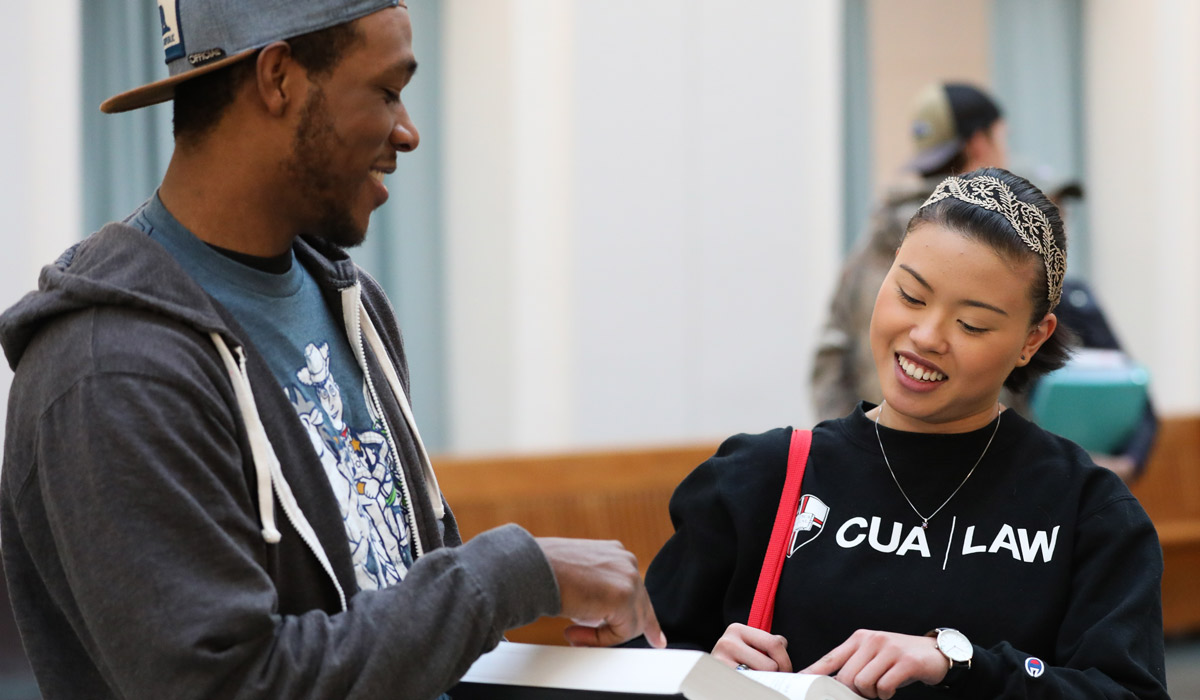Nationwide, more than one in ten who major in history as undergraduates become lawyers. The skills history majors learn – identifying and evaluating information, thinking analytically, and writing clearly – are ideal training for future attorneys.
The joint B.A./J.D. program allows history majors to complete both a bachelor’s degree in history and a law degree within six years, thus saving a full year of time and tuition. This program is offered jointly with Catholic University’s Columbus School of Law.
Successful completion of the program requires careful planning. Any student interested in the program should meet with the department’s Director of Undergraduate Studies (DUGS) in History, Dr. Samuel Fisher, and the Assistant Dean for Undergraduate Programs in the College of Arts and Sciences’ undergraduate office (102 McMahon Hall) as early as possible during undergraduate study in order to discuss and plan
Admission to the B.A./J.D. Program
In order to apply to the program, by the middle of the sophomore year a student must begin developing a plan to satisfy all non-waivable courses for the B.A. by the end of the junior year. The student should take the Law School Aptitude Test (LSAT) in the summer following the sophomore year and apply to the Columbus School of Law in September of the junior year. The student must be accepted by the law school by the end of the junior year.
Successful applicants must meet the admissions standards of the law school. By the middle of the junior year they must achieve a score above the 66th percentile on the LSAT. A cumulative GPA of at least 3.6 at the end of the sophomore year is required for application to the program. To be admitted to the law school, students must also complete by the end of their junior year all non-waivable requirements (including the comprehensive examination) and a minimum of 30 courses.
IMPORTANT NOTE: During the fourth year of study (which is the senior year of the B.A. program and the first year of the J.D. program at the law school), students are fully matriculated in the law school and are required to pay the full tuition and fees charged for the J.D. program, less any financial aid or scholarship awarded. Applicants will be considered for financial aid and competitive scholarships at the law school, but acceptance into the B.A./J.D. program does not guarantee an award.
The student should arrange an interview with the Associate Dean for Undergraduate Programs in the College of Arts and Sciences’ undergraduate office no later than the beginning of the second semester of the sophomore year. After this interview, the student arranges an interview with the Law School Admissions office, and consults with departmental advisers about scheduling courses to complete non-waivable requirements (see above) by the end of the junior year.
Curriculum
During the first semester of the junior year, a student accepted into the B.A./J.D. program draws up an agreement with the Associate Dean of the College of Arts and Sciences, indicating precisely which senior year courses will be replaced by the law program. This agreement goes into effect when the student enters law school; when the student completes the first year program of the law school, he or she will be awarded the B.A. degree. If for any reason, the student does not complete the first year of law school, the ten courses that have been replaced will once again be required.

